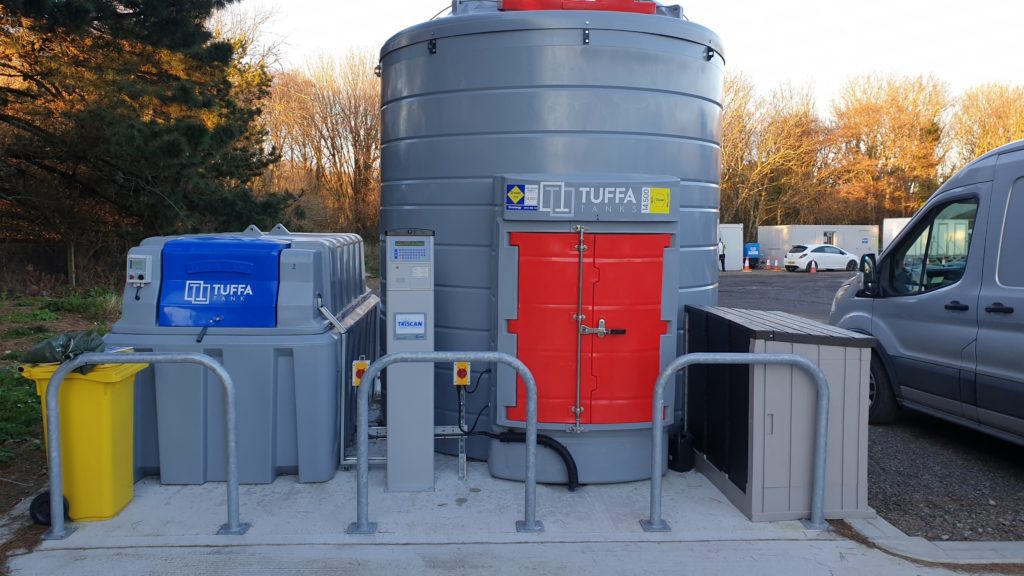
Having attended the Hydrogen and Carbon Capture Show in Bremen towards the end of last year James Shenton, managing director at Tuffa UK Ltd, found that seeing so much activity around hydrogen as a viable alternative to fossil fuels was both liberating and exciting.
With the amount of ground already covered in electrifying the automotive industry James was particularly intrigued by the possibilities of the potential for the game-changing technology and the claim, in an recent BBC article, that it could make a significant contribution to decarbonisation and shares his thoughts here.
Game-changing technology
“In its infancy, the test rig is BIG. 1464BHP BIG. Not ready for the family saloon just yet,” James begins. “But still, as the favourite child, it has its very own entourage, including an adjoining laboratory.
“According to the BBC, it looks like many other vast earthmoving or mining trucks at first glance. The ones where the tyres would tower above your head. And whilst the scale of the vehicle takes some comprehension, encapsulated in its scale could lie game-changing technology.
“Engineers at the University of New South Wales (UNSW) say they have successfully modified a conventional diesel engine to use a mix of hydrogen and a small amount of diesel, claiming their patented technology has cut carbon dioxide (CO2) emissions by more than 85%.”
Why are so many companies still investing heavily in Hydrogen R&D?
“Hydrogen comes with its complications. Our close neighbour, JCB’s global powerhouse, has designed and built a working hydrogen-only engine for their most common powertrain. Moreover, they’ve managed to design and develop a hydrogen refuelling station.
“More on that a little later. It has come at a cost. A considerable cost. Lord Bamford calculates the price to be around £100m in a year.”
Back to our ‘favourite child’
“This is the work of Prof Shawn Kook and his team at the university’s School of Mechanical and Manufacturing Engineering.”
“The interest in converting an existing diesel engine into a clean-burning hydrogen engine is extremely high,” Prof Kook told the BBC at his laboratory in Sydney. Enquiries have come from Germany, South Africa, Brazil, Japan, and China.
“We mount the hydrogen direct injection system into existing diesel engines, which can be applied to any conventional engine,” he adds.
“According to Prof Kook, what makes their system unique is how it mixes hydrogen and diesel and then introduces it to the engine cylinder for combustion.
“If this technology, which is impressive tech, works and is already proven, could this be the game changer we are all looking to the science community for?
“The rollout, even if it was only for the fossil fuel super users such as shipping, haulage, and, somewhat ironically, electrical generation, could have a massively positive global impact on emission targets. Especially considering that the team at UNSW can add the hydrogen cell to an existing diesel engine without needing expensive adaptions.

“Can the users still add the likes of AdBlue, first or second-generation biofuels? The carbon pollutants would be minimal compared to existing pollution.”
A fighting chance
“We work extensively within the chemical and fuel storage and distribution sectors, and we see first-hand some exciting projects people are working on. Often, by the time we get involved in the project, a lot of the background R&D is complete, and we step in to project-manage the storage, compliance, and distribution.
“We get to work with some of the world’s brightest engineers, and I wish everybody could see their work’s level, determination, and scope. This community’s scientific attitude and commitment would go some way to assuaging people’s concerns.
“Sure, we are far from a panacea to an environmental catastrophe. Still, if our new ‘favourite child’ and its cohorts can keep pushing the hydrogen boundaries, we stand a fighting chance.”
Storage – it’s complicated
“Tuffa is an early adopter of hydrogen tech, and we are looking at partnering with industry heavyweights to develop the storage of hydrogen.
“Storage remains ‘complicated’, James shares. “I mentioned earlier that, despite the storage considerations, R&D appears to be at an all-time high. £100m from JCB, plus all the OE investment, emphasises the belief in hydrogen as a viable alternative to fossil fuels. It does feel like a 21st-century Betamax v VHS between Hydrogen and EV.
“We are going through an NPI/NPD process to facilitate hydrogen storage. We also see the environmental and commercial benefits of investing in a greener, safer future.”